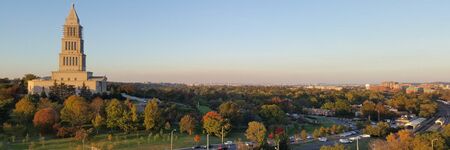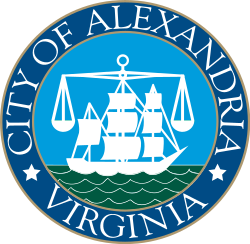Alexandria VA
- Members
Alexandria is an independent city in the northern region of the Commonwealth of Virginia in the United States. It lies on the bank of the Potomac river close to Washington D.C. As of 2020, the population was 159,467. The city's estimated population has grown by 1% percent annually since 2010 on average. Located along the western bank of the Potomac River, Alexandria is approximately 7 miles (11 km) south of downtown Washington, D.C.
Activities

|
An Open Architecture IoT Platform for a Sustainable Smart City | |
| BEMOSS®-Plus is an open-architecture platform that allows integration of IoT devices for energy savings, security, solar PV and storage in buildings. Its versatility will allow the management of energy usage (e.g., electricity and gas) for the entire city, including traffic and security monitoring. The project involves piloting BEMOSS®-Plus in Arlington County, the City of Alexandria and Virginia Tech university campus. | ||

|
NSF Civic Innovation Challenge | |
| The Civic Innovation Challenge (CIVIC) is a research and action competition that accelerates the transition to practice of foundational research and emerging technologies into communities through civic-engaged research. By addressing priorities at the local scale that are relevant across the US, CIVIC is laying the foundation for a broader and more fluid exchange of research and technology capabilities and civic priorities through joint partnerships involving civic stakeholders and the research community | ||

|
NSF 22-529 Smart and Connected Communities (S&CC) Program Solicitation | |
| The goal of the NSF Smart and Connected Communities (S&CC) program solicitation is to accelerate the creation of the scientific and engineering foundations that will enable smart and connected communities to bring about new levels of economic opportunity and growth, safety and security, health and wellness, accessibility and inclusivity, and overall quality of life. | ||
Details
Like the rest of Northern Virginia, as well as Central Maryland, modern Alexandria has been influenced by its proximity to the U.S. capital. It is largely populated by professionals working in the federal civil service, in the U.S. military, or for one of the many private companies which contract to provide services to the federal government. One of Alexandria's largest employers is the U.S. Department of Defense. Another is the Institute for Defense Analyses. In 2005, the United States Patent and Trademark Office moved to Alexandria, and in 2017, so did the headquarters of the National Science Foundation.
The historic center of Alexandria is known as Old Town. With its concentration of boutiques, restaurants, antique shops and theaters, it is a major draw for all who live in Alexandria as well for visitors. Like Old Town, many Alexandria neighborhoods are compact and walkable. It is the 7th largest and highest-income independent city in Virginia.
A large portion of adjacent Fairfax County, mostly south but also west of the city, has Alexandria mailing addresses. However, this area is under the jurisdiction of Fairfax County's government and separate from the independent city. The city is therefore sometimes referred to as the "City of Alexandria" to avoid confusion (see the "Neighborhoods" paragraph below). Additionally, neighboring Arlington County was formerly named "Alexandria County" before it was renamed by the Virginia General Assembly in 1920 to reduce confusion with the city.



